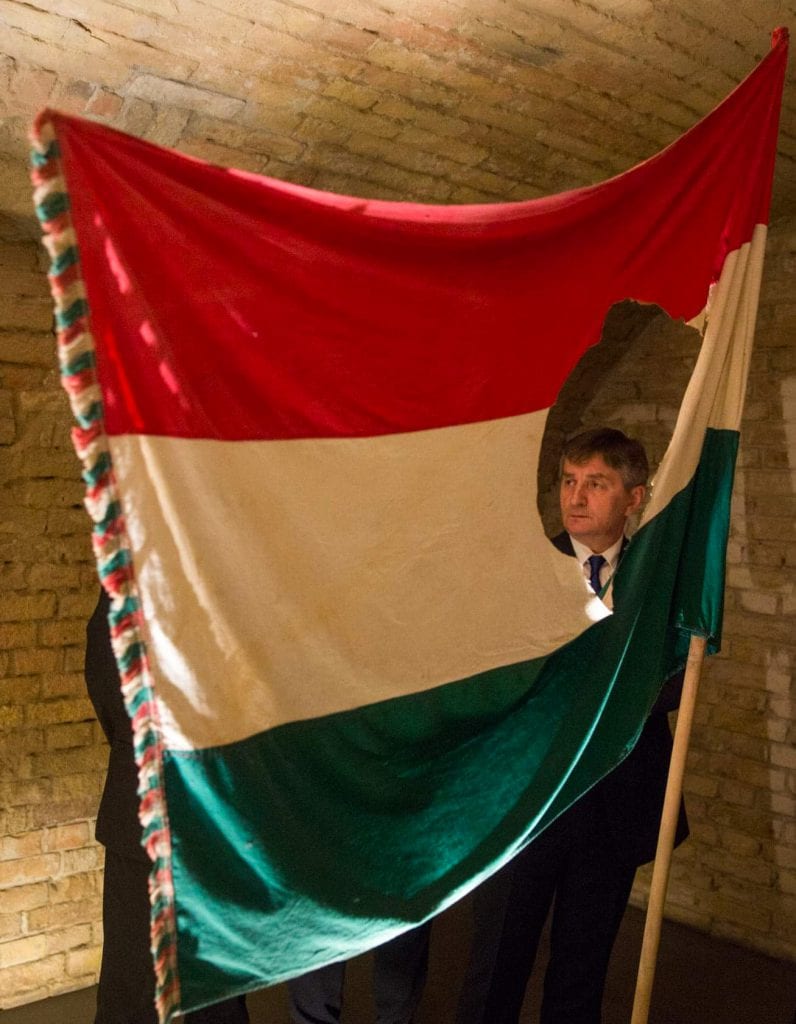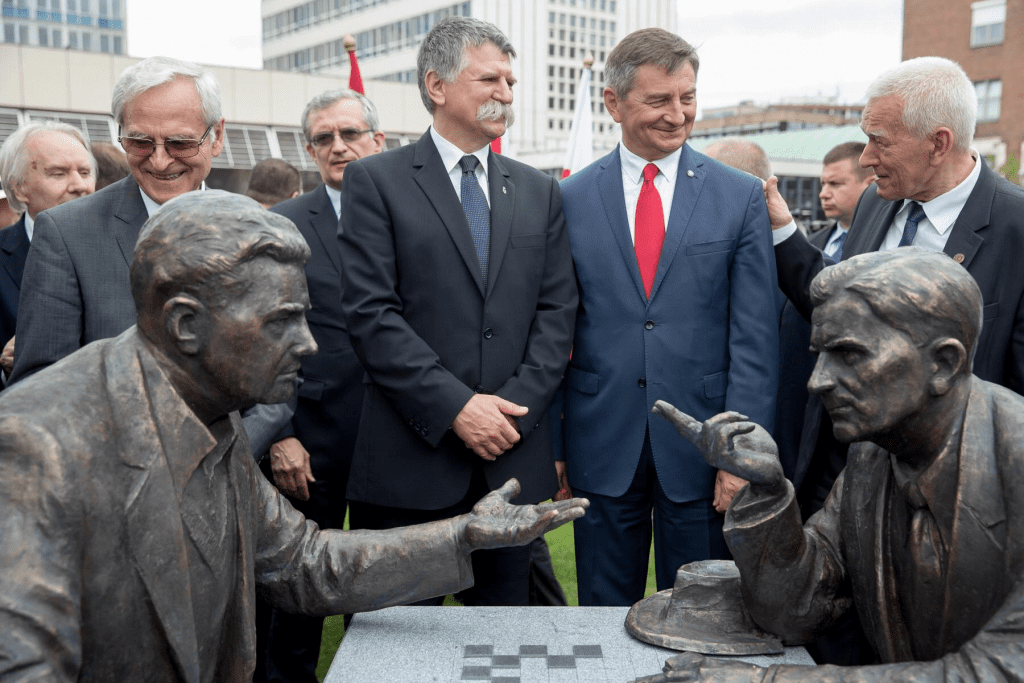On March 12, 2007, the Hungarian Parliament unanimously recognized 23 March - Polish-Hungarian Friendship DayThe Polish Parliament adopted a resolution commemorating long neighbourly relations. Four days later the Polish Seym passed by acclamation a similar resolution. "For over 1000 years Poles and Hungarians have been living in the same part of Europe, creating lasting bonds between the two nations on many levels: political, social, cultural and economic. Many times we have fought together against threats coming from the East and the West". - says the text.
This resolution, although short, perfectly illustrates the unique, thousand-year-old relationship between two seemingly incompatible nations, even linguistically: the Slavic Poles and the Madzars. Referring to the poetry of Sandor Marai, the Hungarian President Janos Ader said that "We were born in Central Europe, so we are heroes many times over". These two proud Nations, thrown into a difficult part of Europe, despite many historical turbulences, not only did not basically stand against each other (except for the conflicts over Halich Ruthenia in the Middle Ages or King Matthias Corvinus of Hungary's invasion of Red Ruthenia), but many times worked closely together. This includes not only the commonly known Visegrad Conventions in the 14th century, but also the personal union between Poland and Hungary, which resulted in the proclamation of the Hungarian ruler Louis I (known in Poland as Louis the Hungarian) as king of Poland, and then the second personal union, when Ladislaus III Varnańczyk became king of Hungary. Also Stefan Batory had a great influence on the rapprochement of both nations, who as Prince of Transylvania led, among others, to the strengthening of contacts between the nobility of the Polish Republic and Transylvania and to the development of trade and economic relations. These close contacts were thus something natural, our nations having influenced each other for centuries.
The year 1956 connected us with a great bridge of solidarity and help. The Hungarian uprising began as a demonstration of support for the political thaw in Poland: "All Hungarians come with us, we will follow the Poles!" - shouted the demonstrators gathered at the Bem Monument in Budapest. Supporting Hungarians, who were fighting against the Soviet regime, Poles sent medicines, food and donated blood.
True friendship between nations is something unheard of in today's world. Of course there are good, friendly contacts, there are partners, there are allies. But Hungarians in Poland and Poles in Hungary are treated with genuine, sincere and undisguised sympathy, which I personally experienced. You can see it also in the public opinion polls - for years Hungarians (next to Czechs and Slovaks) have been indicated as one of the nations Poles are most fond of. The cooperation is also excellent at the level of contacts between towns, schools, universities.
There is probably no closer co-operating and mutually supporting government in Europe today than that of Poland and Hungary. Naturally, the Presidents of both countries, who take part in the Polish-Hungarian Friendship Day every year, also have their great contribution to this cooperation.
As a long-time member of parliament, I cannot fail to mention interparliamentary contacts. When I was Speaker of the Sejm, we met with the Speaker of the Hungarian Parliament, László Kövér, often enough to joke that we met more often than with our own families. Anyway, thanks to our joint involvement, this intense cooperation has managed to go far beyond "traditional" inter-parliamentary cooperation, if only into the cultural sphere. We unveiled together monuments of Sławik-Antall in Warsaw and Budapest, we honored important historical celebrations (anniversary of the 1956 Hungarian Uprising with my speech at the ceremonial session of the Hungarian National Assembly).
Currently, my goal as Chairman of the Polish-Hungarian Parliamentary Group is to strengthen cooperation between our Groups and Members. It was with great regret that I received the news of the cancellation, due to the pandemic, of the Polish-Hungarian Friendship Day celebrations in Csepel in 2020, in which I was to take part. We were very much hoping that after a year, in March this year, we would manage to bring the representatives of our Groups together to celebrate this year's Friendship Day. Unfortunately, the situation in Poland and Hungary does not allow for personal contacts. We are left with a video conference and waiting for the sanitary situation to improve. In the current term I am also the chairman of the Foreign Affairs Committee. Together with Chairman Zsolt Németh, we are focusing primarily on strengthening Visegrad cooperation.
I have been closely and anxiously following reports from Hungary regarding the government's and the public's fight against SARS-Cov-2. It is my fervent hope that our countries will soon overcome the pandemic threat together. I have been in constant contact with my Hungarian friends and have heard first-hand of the heroic struggle of the Hungarian health care system, whose efforts I salute.
A few days ago, on 15 March, our Hungarian friends celebrated an important date - Hungarian Revolution Day, commemorating the national uprising against the Habsburgs and the War of Independence in 1848-1849. This is an important date also for us, Poles. On the side of the Hungarians fought the three thousand strong Polish Legion, commanded by general Jozef Wysocki. The commander-in-chief of the Hungarian army was for some time General Henryk Dembiński, and above all General Józef Bem, considered the most outstanding commander of the fights of 1848-1849. The latter, in particular, still enjoys widespread respect and a well-deserved reputation as a hero both among Poles and Hungarians.
In turn, on February 17 another event took place, which will go down in the history of Polish-Hungarian relations - the handing over by Hungary of the youth armour of the Polish king Sigismund Augustus. This wonderful gesture of Prime Minister Viktor Orbán is for us another symbol of great friendship between our nations.
Marek Kuchciński


Photo: Paweł Kula/ Sejm RP


